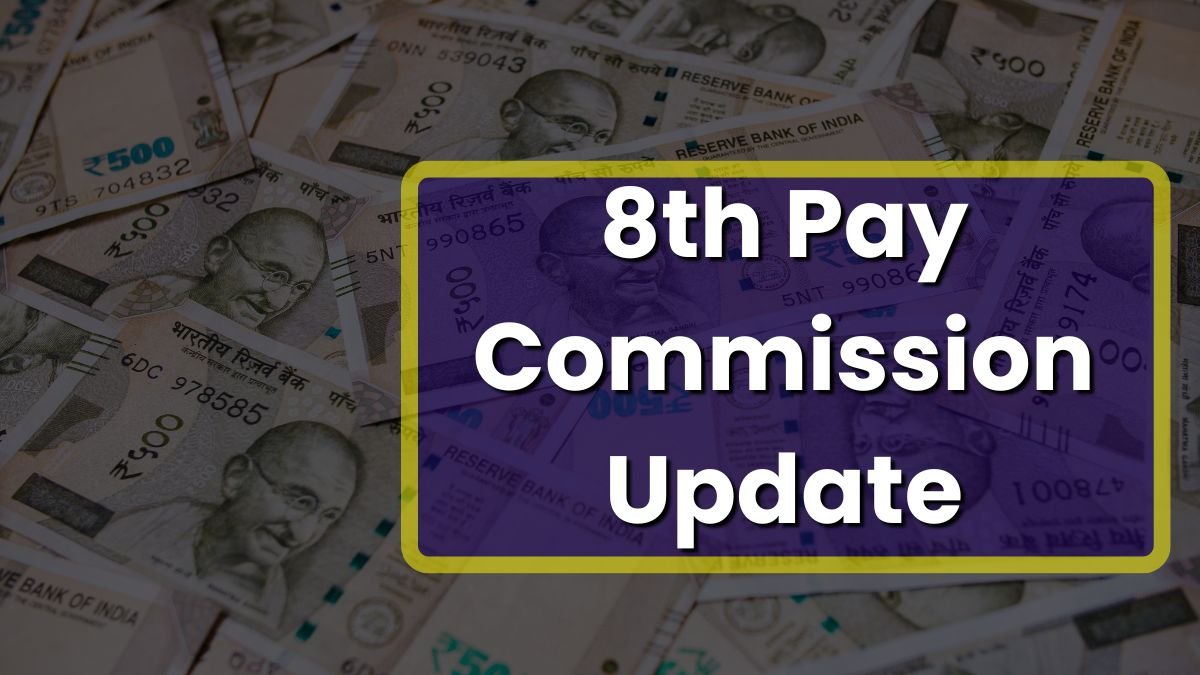The wait is finally coming to an end for lakhs of central government employees. After months of discussions, the path for the 8th Pay Commission is gradually becoming clear. The government has officially acknowledged receiving multiple demands from employees, bringing hope for a new salary structure starting 1 January 2026.
This long-standing issue saw significant movement when Union Minister of State for Finance, Pankaj Chaudhary, responded in Parliament to a query from Rajya Sabha MP Bhubaneswar Kalita. His statement confirmed that suggestions for the 8th Pay Commission have indeed been received from staff associations, and feedback has also been sought from key ministries, including Defence, Home Affairs, and various state governments.
Let’s understand what the employees have asked for—and how these demands can change the future of millions of workers.
What Are the Key Demands of Central Employees?
The National Joint Consultative Machinery (NC-JCM) submitted a detailed list of 15 key recommendations in February 2025. These focus on fair wages, timely promotions, pension reforms, and better healthcare.
Highlights of Demands for 8th Pay Commission:
| Demand | Details |
|---|---|
| Coverage Expansion | Include industrial & non-industrial central employees, defense staff, paramilitary forces, Gramin Dak Sevaks, Supreme Court, Audit Department & autonomous bodies. |
| Salary Revision Date | Implement new pay structure from 1 January 2026. |
| Merging Lower Pay Levels | Combine Level 1 & 2, and 3 & 4 for better clarity and parity. |
| Minimum Wage Criteria | Link minimum wage to ‘Living Wage’ standard, not just market benchmarks. |
| Promotions | Ensure minimum 3 timely promotions for every employee. |
| Interim Relief | Provide interim relief by merging DA with basic pay until the final implementation. |
| Pension Reforms | Restore commuted pension in 12 years, end NPS, and reintroduce Old Pension System (OPS). |
| Health Benefits | Strengthen CGHS, increase fixed medical allowance, and introduce cashless treatment. |
| Risk Allowance | Provide risk allowance & insurance for 24×7 workers and defence civilians in hazardous roles. |
Why These Demands Matter
Government employees form the backbone of India’s administration, law enforcement, postal services, and more. For many, the current pay structure no longer matches the cost of living. That’s why the demand for a ‘living wage’, better promotion policies, and restoration of the old pension scheme carries both emotional and financial significance.
If accepted, these changes won’t just benefit salaried staff—but also retired pensioners who’ve dedicated their lives to public service.
Government’s Response So Far
Though there is no official notification for the 8th Pay Commission yet, the government has acknowledged the importance of the employee feedback. Sources indicate that internal-level discussions are ongoing, and a formal announcement may be made once broader consensus is reached.
FAQs – People Also Ask
Q1. When will the 8th Pay Commission be implemented?
Answer: As per current discussions, the implementation is expected from 1 January 2026, although the official announcement is still awaited.
Q2. How many promotions are being demanded by employees?
Answer: Employees have requested a minimum of 3 promotions during their service to ensure career progression and motivation.
Q3. Will the old pension scheme return under the 8th Pay Commission?
Answer: One of the major demands is to abolish the National Pension Scheme (NPS) and bring back the Old Pension System (OPS) for better retirement benefits.
Q4. What changes are expected in minimum wage calculation?
Answer: Employees want minimum wage to be calculated based on ‘living wage’, which reflects real-life household needs rather than fixed formulas.
Q5. Will there be any benefit for Gramin Dak Sevaks and defense staff?
Answer: Yes, the demand includes full inclusion of Gramin Dak Sevaks, defense civilians, and paramilitary forces under the new pay structure and risk allowances.
Conclusion
The 8th Pay Commission is more than a policy update—it represents the hope of fairness, dignity, and improved quality of life for government workers and pensioners. As the government reviews these suggestions, employees across the country await a positive decision that honors their service and secures their future.
